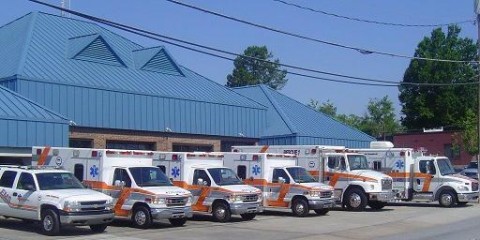As county officials and emergency medical care providers struggle with the changing emergency care landscape in Anderson County, the recent announcement that a Tennessee based corporation has acquired a significant interest in Medshore, South Carolina’s largest privately owned ambulance service, has further confused the scene. That confusion about the impact that Medshore’s acquisition by Priority Ambulance is unnecessary, according to Greg Shore, CEO and primary owner of Medshore.
“Priority Ambulance approached me about six months ago. We had doubled our presence in South Carolina over the previous three years, and Priority has also been expanding their national footprint. They do so by seeking and acquiring ambulance services where the current owners are interested in remaining and running the businesses.”
Shore pointed out that he had been assuming more than $4 million in debt that doubling his company’s size had incurred.
“I was on the hook for that money, and I’ll tell you, that’s a pretty good sized hook. So when Priority approached me, I was willing to listen. I didn’t sell the entire company, but I was able to address the debt and have some operating capital as well.”
But Shore, who is a major figure in the current realignment of medical emergency services in Anderson County, says that the change in his company’s status should have very little impact on either the community, or on his employees. Shore says he hopes to double Medshore’s presence once more during the coming three years.
“Once my deal with Priority is completed, probably in January, we have a couple of acquisitions we hope to make, as well as some other partnerships with various health care providers, such as Palmetto Health, which owns a number of hospitals in the Columbia area and the middle of the state. That will be a multi-million dollar contract.”
Shore reiterated that he plans to present a proposal to the County Council, hopefully in February, for the realignment of emergency medical services in Anderson county.
“Our plan will incorporate all of the current stakeholders who provide emergency care,” Shore said. “There will be one agent body responsible for oversight, and the efficiencies created will save taxpayers money. It will also keep all the squads independent, which is what they want.”
Shore concedes that there are a number of alternatives to his approach. He says that the county might choose to provide the service, either alone or in cooperation with AnMed. He also anticipates that the squads may cooperate in preparing and presenting a plan.
But Shore sees coming changes in the emergency medical arena as the greater challenge. “The ways in which squads are paid for their services have to be reviewed, The industry is on the verge of drastic changes, which will impact all of us. For example, community paramedicine is going to play a much larger role. Medicare and private insurers are going to start encouraging, if not requiring, EMS providers to do more diagnosis and triage in the home, with an eye to transporting patients to the least expensive, appropriate location.”
Shore explains that a triage nurse could be available at the dispatch facility to communicate with EMTs and paramedics to determine where the patient might be taken for treatment, or even treated on the scene instead. He foresees a day when paramedics may make preventive visits to certain frequent users of the EMS system.
“We all know patients who call 911 several times a month. They use the ER as their medical provider. The problem is that ER care is the most expensive option. So if we send an EMT or a paramedic by to make sure these folks are up to date on their meds, that they have food in the house, or have had some human contact, we may be able to prevent those unnecessary calls to 911.”

















